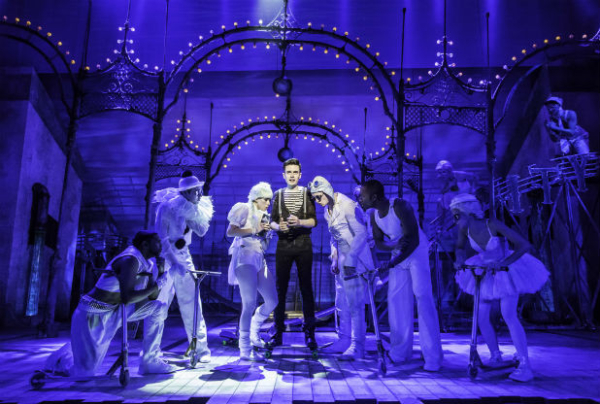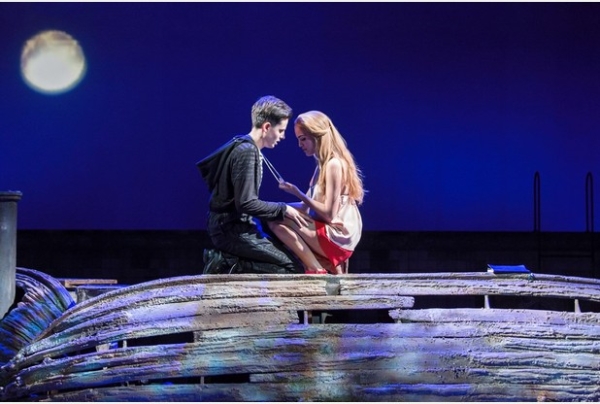Catherine Love: Critical conversations

© Johan Persson
First of all, what this blog is not about. I don’t see much value in reopening the old debate about whether or not critics have the power to "kill" a show; it’s almost impossible to determine the level of influence that reviews have, being as they are just one factor among many in audience members’ decisions about what they book to see, and there are productions one can easily point to in order to support both sides of the argument. I would struggle, therefore, to definitively agree or disagree with Filloux-Bennett’s opening suggestion that critics wield enough might to slay any shows that fail to impress them.
What I really take issue with, though, is Filloux-Bennett’s unequivocal statement that the critics are "wrong" about Water Babies. The assumption this stems from – that it is possible to be firmly wrong or right about a show in some objective, authoritative way – is exactly the sort of assumption that might just kill off productions that receive unfavourable reviews. As long as we view critics as strangely objective beings, we deprive criticism of its wider possibilities.
Critics may certainly revisit and rethink their opinions, as the Guardian‘s Michael Billington did with his initial dismissal of Sarah Kane’s Blasted, or their views might run counter to the majority of audiences in the case of hugely popular yet critically panned shows like Les Miserables. But they are not objectively, absolutely wrong. Unless there are clear factual or observational errors in a review, its accuracy of judgement is purely subjective. Yes, critics (hopefully) bring with them experience and expertise which they can use to illuminate their thoughts on any particular production, but the ultimate judgement on a play’s quality comes down to a subjective decision, with which others may or may not agree.
“Criticism… is not just a consumer guide, a thumbs up or down”
“Criticism… is not just a consumer guide, a thumbs up or down”
The best theatre criticism – at least in my opinion – is that which can stand behind its own judgement of a piece of work, but explain that judgement in such a way that even those who may not share the critic’s taste can get enough of a sense of the show to decide whether or not they want to see it for themselves. Then, of course, there is the role that criticism plays in cultivating discussion around theatre; it is not just a consumer guide, a thumbs up or down that determines ticket sales. Criticism opens up a conversation, with many of the best debates arising around shows about which the critics strongly disagreed.
Filloux-Bennett’s claim that critics "provide the marketing equivalent of oxygen to productions, allowing them to survive" offers a hugely reductive picture of the critic’s role. If that were the case, we might as well do away with criticism entirely and just get marketing departments to generate their own positive press. There are certainly objections to be made to the "grandstanding" that Filloux-Bennett condemns if it is not backed up by thoughtful analysis – there’s nothing worse than reading a review which is all about the critic rather than the show – but to suggest that critics should indiscriminately support new work completely misunderstands the role of criticism.
As Michael Coveney suggested in his response, some work just needs "nipping in the bud". After all, not every piece of new theatre can be excellent. Yes, critics should be encouraging the development of new work and getting to see and write about it as much as they can. But if they criticise that work, they are not starving the theatre ecology of oxygen; if anything, they are providing the fresh blasts of air that prevent it from stultifying. Defending his own infamous aggression, Kenneth Tynan wrote, "I had rather be a war correspondent than a necrologist". To ensure that theatre remains alive as an art form, sometimes a bit of dead wood needs to be cut away. And if there is disagreement and debate about what the dead wood might be, then all the better.












